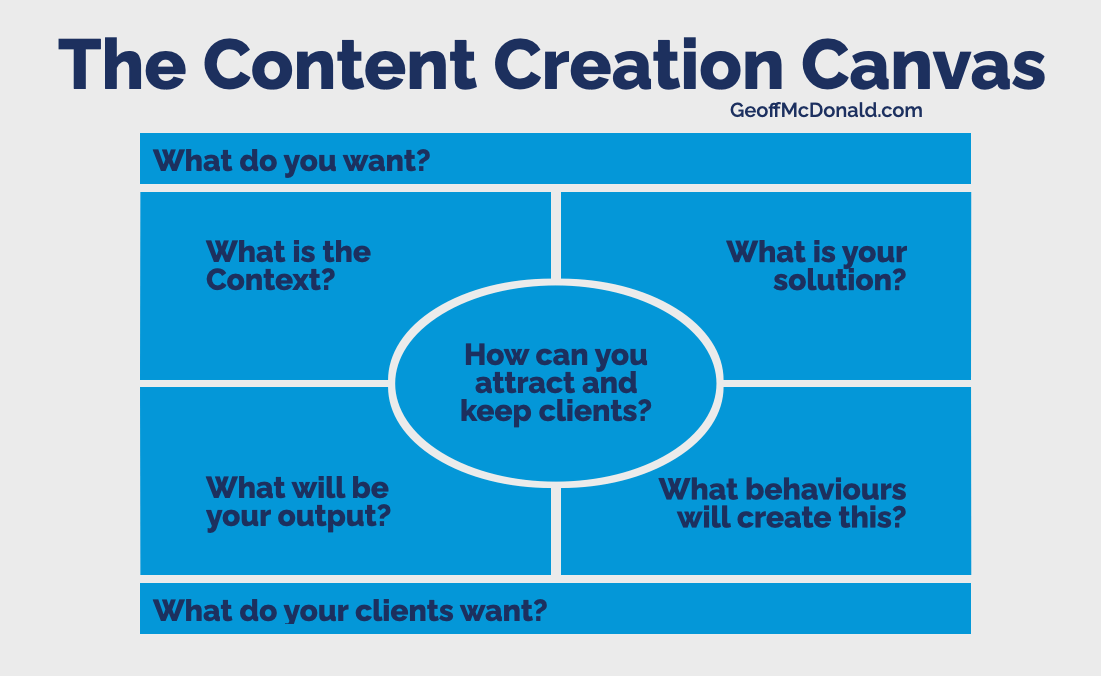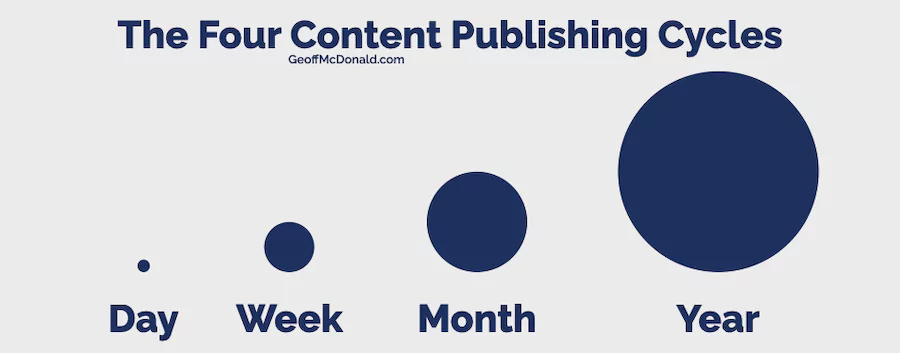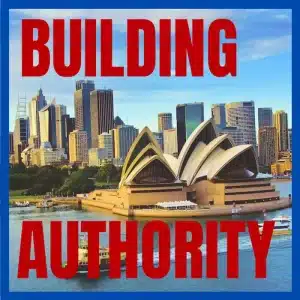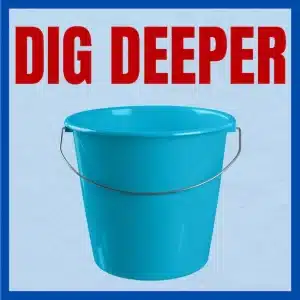The best content creation planning ideas for thought leaders helps you avoid wasting time by focusing on what to create, when to create and where to share it.
A Content Plan for Thought Leaders
To earn money from what you know, you need to share what you know with other people.
Otherwise, how are they going to know how you can help them?
This means at some point you must create and share content.
But how do you do this effectively?
In this post, I’ll share the seven best content creation planning ideas for thought leaders. Follow these principles to define a clear plan that cuts waste and multiples your engagement.
The Content Creation Canvas Series
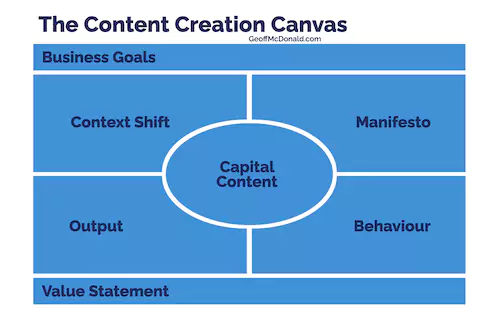
Previously, we’ve covered:
- Creating your business goals
- Defining your client value statement
- How to create a transformation for your clients
- Why you need to write a business manifesto
- How to attract new clients and keep your clients for longer with one set of content
1 The number one way Thought Leaders must approach their Content Creation
Most people think about their content in the wrong way.
They think it’s all about churning out another post, another video, another image.
Churn, churn, churn.
But this is why their content is boring and generic and nobody takes any notice.
Instead of thinking about content creation think conversations.
Thought leaders lead with their ideas.
And they do this by leading conversations.
Stop thinking about individual pieces of content and start thinking about the narrative, the story arc and the conversation.
This way you’ll be able to create content that flows like a Netflix series that will keep people coming back again and again to hear the next episode.
Start your content creation planning by thinking in terms of conversations.
2 How to leverage your Content Marketing efforts
It takes a lot of time, effort and energy to create and share content.
But too many people waste this time by only publishing their content once. That’s a waste of time.
You absolutely positively must repurpose, re-use and recycle every piece of content you create to boost your return on your effort.
But too many people do this the wrong way.
They write a post and publish it. Then about a month later they go and publish the same post. That’s just plain lazy.
What I mean by repurpose is to turn your content into something else, so it has multiple uses. For instance, every blog post could be a page in a book. Every video could be a podcast and a blog post.
Start your content creation planning by thinking about repurposing your content BEFORE you create it.
3 The Four Types of Content you can Create
Most people write their content. It’s fast and it’s easy.
But that doesn’t mean it’s the best way for you. There are two problems here.
- Firstly, most people are tongue-tied when they write.
- Secondly, who wants to read more words?
There are four types of content you can create.
- Words
- Video
- Audio
- Designs – which is images and graphics
To work out which format is best for you, ask yourself: Which one best positions you to sell your services?
- If you’re a speaker, then showing yourself speaking through video is an obvious answer.
- If you’re a designer, then show us your designs.
Or, if this is not so clear-cut – like if you’re a coach – then work out what your strengths are and use this to create your signature style.
Start your content creation planning by choosing the best way to promote yourself.
4 The four things you need to create Content about
The big question everyone wants to know about Content Creation is: What should I create content about?
This is one of the big reasons that I created the Content Creation Canvas.
It was designed to help you create both your Thought Leadership IP and your Content Marketing material.
The previous four posts should tell you what to create your content about.
- Client Value Statement: What do you help your clients achieve?
- Context Shift: What’s the transformation you want your clients to make?
- Manifesto: How do you help your clients win?
- Capital Content: What content will attract new clients and keep your existing ones for longer?
Start your content creation planning by creating your IP and your manifesto.
5 How to find the right Publishing Cycle for your Content Creation
A lot of people will tell you the more you publish your content the better.
Maybe.
Your birthday is a special day. And it’s special partly because it only happens once a year. If you celebrated your birthday every single day, then it wouldn’t be as special.
Consistent content is better than more content. You can build your own rhythm and your clients will know what to expect.
There are four natural cycles to consider:
- Daily – great for posting on social media
- Weekly – This is my preferred cycle – one video, one blog post, and one email newsletter each week.
- Monthly – great for a bigger report. This was my cycle for Book Rapper my book summary service – one summary a month.
- Yearly – great for turning your bite-size content chunks into bigger products or services. For instance, one blog post a week could become a great book.
Start your content creation planning by defining your content cycle.
6 The Three Must-Have Content Publishing Platforms
Most people want to know what platform to publish on.
Should you be on Facebook, LinkedIn, Instagram, Pinterest, YouTube, Tik Tok, Twitter, or Snapchat?
I think it’s crucial that you have one fixed address where people can always find you. You need a home base. Traditionally, this was your website. But nowadays you can build your entire business on a social platform.
But which one is best?
There’s an old saying that suggests you should not put all your eggs in one basket. That’s because if your basket falls, you could lose everything. Noooooo….
That’s why I recommend having all three of these platforms in place:
- A website
- An email list
- A social platform
Then it’s up to you to decide how much time and effort you put into each one. For example, you can build a one-page website or one with all the bells and whistles.
Start your content creation planning by defining the location of your home base.
7 The simple test to ensure your Content Creation Planning is going to work
Creating a strategy is not easy. There are always a lot of options, choices and competing priorities.
But the more complex your strategy the less likely you are to follow it. And if you can’t follow it, then it won’t be successful, and you won’t be successful.
You need to keep your strategy simple so you can always remember it.
You need your strategy to pass the Sentence Test. Simply put, you need to be able to quote your strategy in a single sentence.
Here’s my example: Each week I publish one video on YouTube, one blog post on my website and one email newsletter to my followers.
That’s it. It says what I’m publishing when I’m publishing and where I’m sharing.
Finish your content creation planning by stating your strategy in a single sentence.
Summary: The best Content Creation Planning Ideas for Thought Leaders
Why do we plan? (Perhaps I could have started with this…)
We plan to consider the things we need to do to succeed and the things to avoid that might make us fail.
This post is about bringing together all of our previous videos in this series to help you create a clear and simple Content Creation Plan.
Use these principles to answer the big questions in your content planning.
Once you’ve passed the Sentence Test, then you can move on to our next video in this series where you’ll define what behaviour and actions you need to take to make all of this happen.
More on Content Creation Planning
If you want to dive deeper into your content creation planning, here are three related posts:
- Overview: Content Creation Canvas: Build thought leadership, attract new clients
- Content Creation Manifesto – The Ultimate Guide to Thought Leadership Content
- The Three Levels of Thought Leadership Content Marketing
Question
Which one of the seven content creation planning ideas in this post excites you the most?


